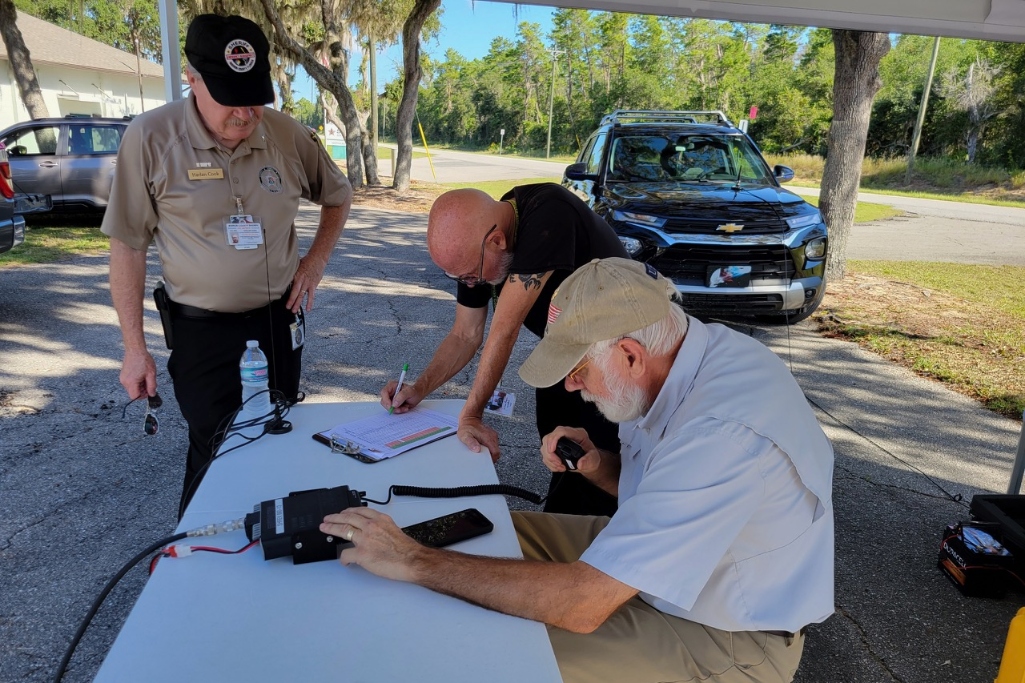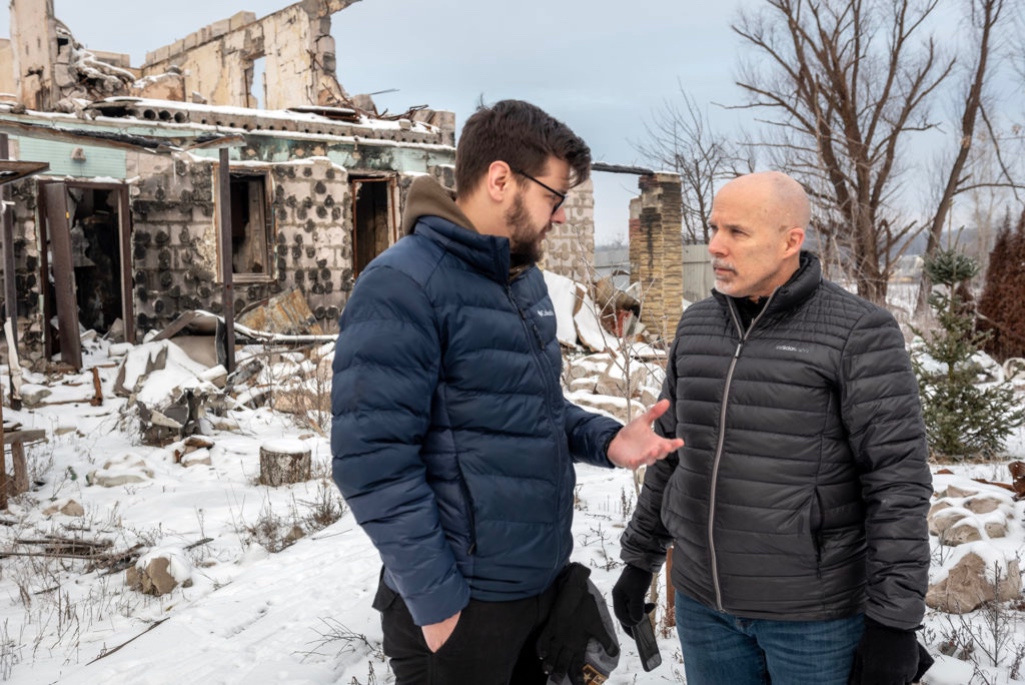
Members of the Marion Emergency Radio Team are shown testing signals and equipment recently in Salt Springs. Mark Weible, the Marion Baptist Association’s mission strategist, joined this team to learn more about emergency communications.
OCALA, Fla. — With plans for its own ham radio room and new radio tower, Marion Baptist Association in Ocala will soon be taking part in emergency communications to help local churches and their membership during statewide disaster relief efforts.
The updates are coming at a great time, as Florida’s hurricane season is underway, said Mark Weible, associational mission strategist, who only got his ham radio license about a year ago. Since then, he has discovered the many applications of this technology and a new community of people who are practitioners.
“A year ago when I started studying for my ham radio license, I had no idea that I would get this far deep into it. Or that it would be this practical,” he said.
Establishing a network
Weible is hoping to establish a network of ham radio operators among all 67 churches in the association. The idea is for each church to have its own ham radio operator so that churches can communicate with one another and relay information in the event of a hurricane or other natural disaster.
“My No. 1 reason for doing this was simply to reach out to our churches,” Weible said. “If we were to have a hurricane, I’d need to know which churches have power, which churches are not damaged and which churches can host disaster relief teams. I’d need to know which churches need help and which ones can help.”
He has asked local pastors to help find ham radio operators in their congregations, but they’re not always so identifiable or forthcoming about their hobby. It’s not something a pastor would typically know about members of his congregation. So far he has about 13.
After passing the test to become licensed, Weible joined the Silver Springs Radio Club to get to know more ham radio operators. The club has about 160 active members, including three from local Baptist churches.
He also joined the Marion Emergency Radio Team to help him understand how to use ham radio for emergency purposes. The team operates the radio at the county’s Emergency Operations Center during disaster situations. Joining the team resulted in the donation of a telescoping shortwave radio antenna — it goes from 7 feet to 30 feet — to Marion Baptist Association. It was being replaced at the Marion County Division of Emergency Management, and Weible asked if he could have it for the association.
Volunteering with that team led him to develop an Emergency Communications Plan for the association using the letters PSA. P is for “Primary,” such as the cell phone and office phone. S is for “Secondary,” such as the Starlink satellite internet service, which allows you to text and call from your cell phone via Wi-Fi calling. A is for “Auxiliary,” or amateur radio.
“If the phones are not working, if Starlink isn’t working, then we have amateur radio we can turn to,” he said. “Cell phones, land lines and Starlink depend on infrastructure that you can’t control. Ham radio is just two people with radios. There is no required infrastructure.”
Serving alongside Florida Baptist Disaster Relief
Weible plans to combine his newfound radio skills with the chaplaincy training he completed last year with Florida Baptist Disaster Relief. As he’s checking on people impacted by storms and engaging in spiritual conversations, he can also help them get messages to friends and loved ones in other areas. That type of communication can be vital during a crisis.
“If they are emotionally distraught because they have not heard from their family members or vice versa, they may be so upset that they can’t eat,” he said. “As a chaplain I can take that message and get it to our communications team right away with my radio. This can have immediate impact and an immediate benefit because communication is a basic human need.”
That’s the type of service churches could be providing to the public after disaster hits if they have a radio room set up with a communications team of volunteer radio operators.
Many ham radio operators enjoy this as a hobby or sport, Weible said. They compete in contests and win certificates and awards for things such as making contact with someone from around the world.
“Some people do it purely for fun, just like some people watch college football all day on Saturday,” he said. “There’s science in it; there’s math in it. There’s the sense of adventure and exploring. There’s the sense of problem solving. That’s why it’s a hobby that once people get into it, it kind of becomes consuming.”
Sometimes these enthusiasts may just need a little direction, Weible said, an invite or a push in the right direction to see how they could be using their talents to help others.
“They have all the knowledge; they have the equipment but no one saying, ‘Hey, why don’t you use this for emergency communications?’”
Now that the association has its radio room set up, Weible plans to show it off to local churches and ask them to consider setting up their own rooms.
Getting his ham radio license and joining the local radio clubs has exposed Weible to a whole new community of people. When they ask why he got into radio, he tells them about his role at Marion Baptist Association and how he wants to help churches communicate with one another and help each other during times of disaster. He even keeps a radio in his car now.
“Now they know about Florida Baptist Disaster Relief, and now they know there are Christians who live out their faith by serving others as volunteers during times of disaster,” he said. “It helps them to see the very positive side of what it means to be a believer, what it means to be a follower of Jesus and what it means to be a church member. This has allowed me to have a positive witness with a group of people that I would never have had access to before.”
(EDITOR’S NOTE — This article originally appeared at flbaptist.org.)


